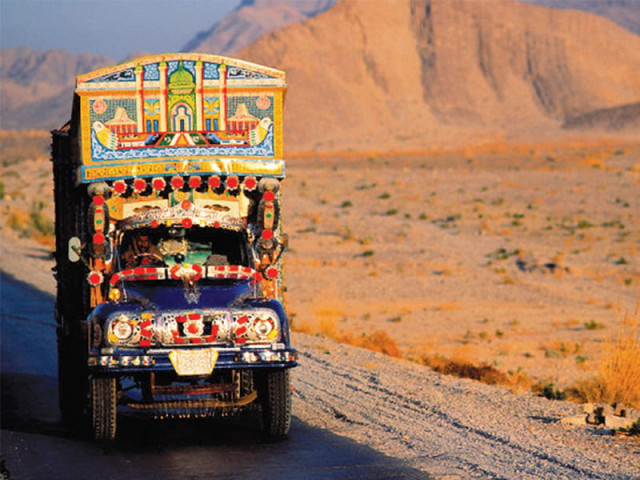Afghan transit trade: Insurance companies agree to financial guarantees
The move is seen as a reversal from their previous position.

In a significant development, insurance companies have agreed to issue financial guarantees for Kabul bound transit goods, thereby removing a major bottleneck in the implementation of the Washington-backed Afghanistan Pakistan Transit Trade Agreement (APTTA).
In a testimony to the Senate Standing Committee on Commerce, Customs Federal Board of Revenue official Mumtaz Rizvi said that the insurance companies have eventually agreed to issue guarantees for Afghanistan-bound goods. These companies would start issuing guarantees after September 7- the day the two month waiver period comes to an end.
Earlier, these companies had refused to extend the guarantees due to high premium costs. Under APTTA, importers will have to submit insurance guarantees equivalent to 100 per cent duties on the imported items. After the insurance companies had initially refused, Prime Minister Syed Yousaf Raza Gilani had waived the insurance condition on July 7 for two months and asked the Finance Minister to resolve the issue in the stipulated time. Rizvi said New Jubilee Insurance Company, National Insurance Corporation and EFU Insurance have recently agreed to extend guarantees while Adam Jee gave principle consent. In a test case, the New Jubilee has issued guarantees to 15 Afghan traders, he added.
The new APTTA became operational in June this year but soon after became redundant due to operational difficulties due to a blockade of cargo at Karachi ports. The distinct features of the new treaty that make it different from the 1965 transit treaty are insurance guarantees and tracking systems. However, these two clauses of the agreement have not been invoked.
A customs official said that for installation of a tracking system on trucks, the Federal Board of Revenue (FBR) has shortlisted three companies and would issue them licenses on August 18 after visiting their control rooms. He said that to avoid wear and tear; the Communication Ministry has placed trucks into five categories based on load.
Rivzi said the FBR has also taken measures to curb smuggling that in his claim curbed the smuggling by two-third during last three months. He said the FBR had banned stuffing and de-stuffing of containers at Karachi port and now goods will be transited to Afghanistan in the same container. He said the FBR has also barred trans-shipment and trans-loading. He said the transit goods can only be transited by NLC or bounded carriers.
Rizvi claimed that due to these measures smuggling of clothes, tea, tyres, auto parts and lube oils has drastically been reduced by two thirds and their imports have started picking-up.
The APTTA Group — a pressure group of traders and transporters from Khyber-Pakthunkhwa and Balochistan — has opposed the customs measures of trans-shipment and trans-loading. It claimed that due to these measures 1.5 million people associated with transport industry would lose their jobs.
“Instead of being hard on corrupt customs staff, the FBR has opted for a short-cut route by banning transshipment of containers”, said Senator Ishaq Dar of PML-N. He said APTTA was signed under United States pressure and is now causing billions of rupees worth of losses directly and indirectly.
The APTTA Group demanded the government that the government include Peshawar and Chaman dry ports in the trans-shipment of containers otherwise transporters’ problems would not be resolved.
Senator Ilyas Bilour, the chairman of the panel said that the NLC was opposing the move to include the Peshawar dry port and manipulating the transit treaty to its own benefit that has complicated transporters problems.
Published in The Express Tribune, August 17th, 2011.



















COMMENTS
Comments are moderated and generally will be posted if they are on-topic and not abusive.
For more information, please see our Comments FAQ